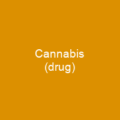What Exactly Is a Drug?
A drug is any chemical substance that produces a biological effect when administered to a living organism. Think about it—how many times have you taken medicine for a headache or a cold? That’s a drug! But did you know there are different ways to consume them, like through inhalation, injection, smoking, ingestion, or even via patches and suppositories?
Pharmaceutical Drugs: The Good Guys
Pharmaceutical drugs are used to treat, cure, prevent, or diagnose diseases. They can be grouped based on their chemical structure, mechanism of action, and solubility. Imagine these drugs as soldiers in your body’s army, fighting off the bad guys (diseases) with precision and purpose.
Psychoactive Drugs: The Mind-Altering Agents
Psychoactive drugs affect the central nervous system, altering perception, mood, or consciousness. They can be divided into different groups such as stimulants, depressants, and hallucinogens. These are like the wild cards in a deck of cards—each one has its unique effects on your mind.
Side Effects and Abuse
All drugs can have side effects, and abuse can lead to addiction or physical dependence. It’s like when you eat too much candy—it might taste good at first, but it can cause problems later. So, always use drugs responsibly.
The History of the Word ‘Drug’
The word “drug” originates from Old French “drogue,” possibly derived from Middle Dutch meaning “dry matter.” It’s fascinating how such a simple term has evolved over time to encompass so much complexity. In some contexts, it carries a negative connotation, while in others, it is used interchangeably with medicine.
Personalized Medicine: Tailoring Drugs to Individuals
Some drugs are specifically approved for certain genotypes or mutations, such as Erbitux for colorectal cancer patients with a particular EGFR gene mutation. This is the motivation behind personalized medicine—developing drugs that are adapted to individual patients. It’s like having a tailor-made suit; it fits perfectly because it’s made just for you.
Medication Categories: Over-the-Counter and Prescription
A medication or medicine is a drug taken to cure or ameliorate any symptoms of an illness or medical condition. The use may also be as preventive medicine that has future benefits but does not treat any existing or pre-existing diseases or symptoms.
Dispensing Regulations
In the United Kingdom, behind-the-counter medicines are called pharmacy medicines which can only be sold in registered pharmacies, by or under the supervision of a pharmacist. These medications are designated by the letter P on the label. Governments regulate drug manufacture and use through laws and international treaties to ensure safety and efficacy.
Pharmaceutical Companies and Patents
Pharmaceutical drugs are typically produced by pharmaceutical companies and are often patented to give the developer exclusive rights to produce them. Those that are not patented (or with expired patents) are called generic drugs since they can be produced by other companies without restrictions or licenses from the patent holder.
Drug Classes: Categorizing for Better Understanding
Pharmaceutical drugs are usually categorized into drug classes. A group of drugs will share a similar chemical structure, have the same mechanism of action or the related mode of action, or target the same illness or related illnesses. This categorization helps in better understanding and management.
Entheogens: Drugs for Spiritual Purposes
Some religions use certain drugs known as entheogens, which are mostly hallucinogens—psychedelics, dissociatives, or deliriants. Entheogens include kava, ayahuasca, Salvia divinorum, and cannabis, among others. These substances can be used for spiritual purposes, much like how incense is used in religious ceremonies.
Nootropics: Enhancing Cognitive Abilities
Nootropics, also commonly referred to as ‘smart drugs,’ are drugs that are claimed to improve human cognitive abilities. Methylphenidate, used for ADHD and narcolepsy, can become highly addictive at high doses, leading to serious addiction, psychosis, anxiety, heart problems, suicides, and overdoses.
Designer Drugs: Mimicking Psychoactive Effects
Designer drugs are synthesized to mimic psychoactive effects. Examples include LSD, designer steroids, and synthetic cannabinoids. These substances can be dangerous because they often have unpredictable effects on the body and mind.
Recreational Drug Use: Altering Consciousness for Fun
Recreational drug use involves altering consciousness for positive emotions and feelings. Common substances include LSD, ketamine, cannabis, alcohol, tobacco, and caffeine products. It’s like choosing to ride a roller coaster—fun at first but potentially risky.
The Regulation of Drugs: Government Oversight
Where it is legislated against, the degree of prohibition also varies. The Food and Drug Administration (FDA) in the United States regulates food safety, tobacco products, dietary supplements, medications, vaccines, biopharmaceuticals, medical devices, cosmetics, animal foods, and veterinary drugs.
In India: Combating Drug Trafficking
In India, the Narcotics Control Bureau (NCB) combats drug trafficking under the provisions of the Narcotic Drugs and Psychotropic Substances Act. This act helps in maintaining public health and safety by controlling the manufacture, sale, and distribution of drugs.

Understanding drugs and their effects is crucial for making informed decisions. Whether you’re dealing with prescription medications or exploring the world of psychoactive substances, always approach them with caution and respect. After all, they can be powerful tools when used responsibly but can also cause significant harm if misused.
You want to know more about Drug?
This page is based on the article Drug published in Wikipedia (retrieved on March 11, 2025) and was automatically summarized using artificial intelligence.






